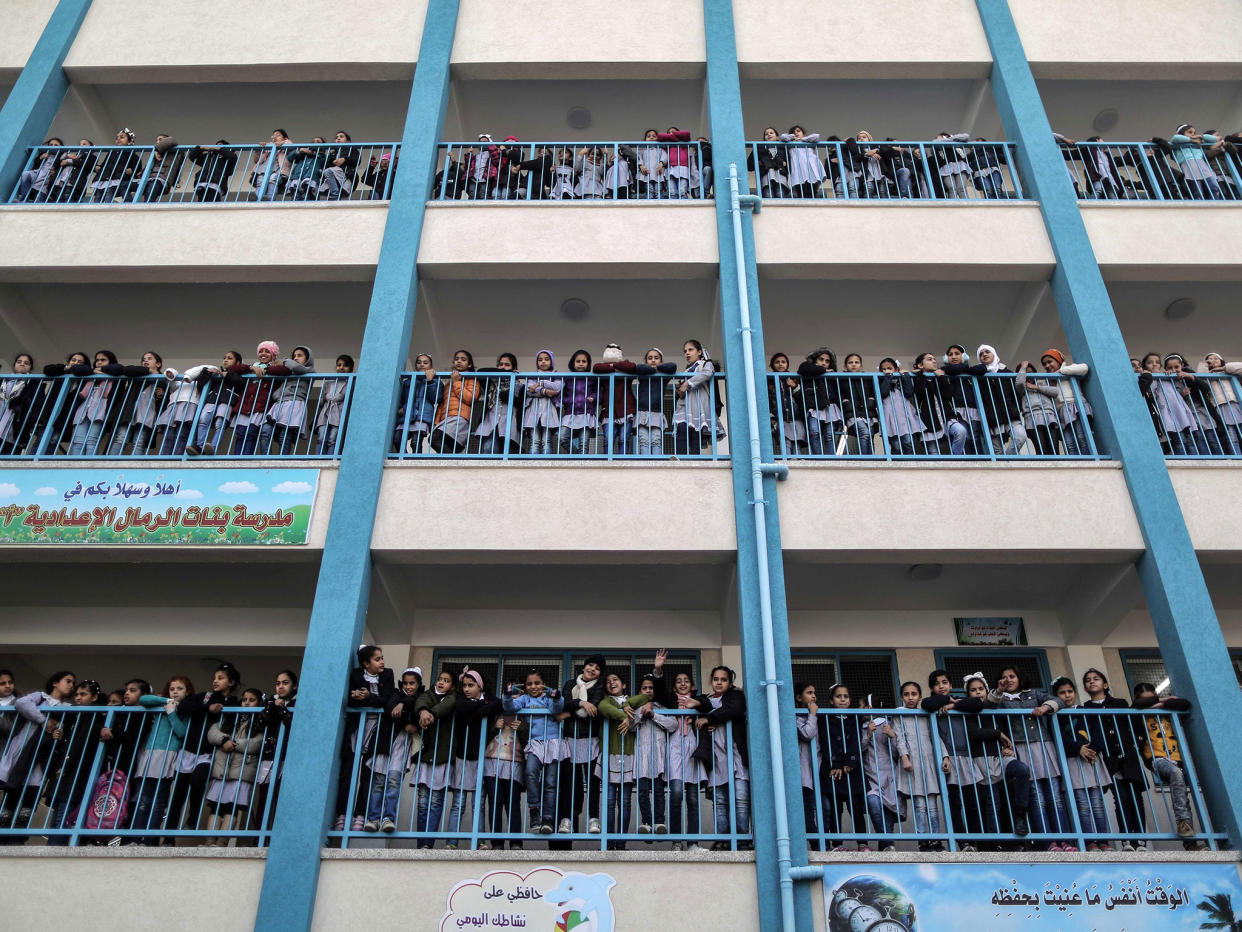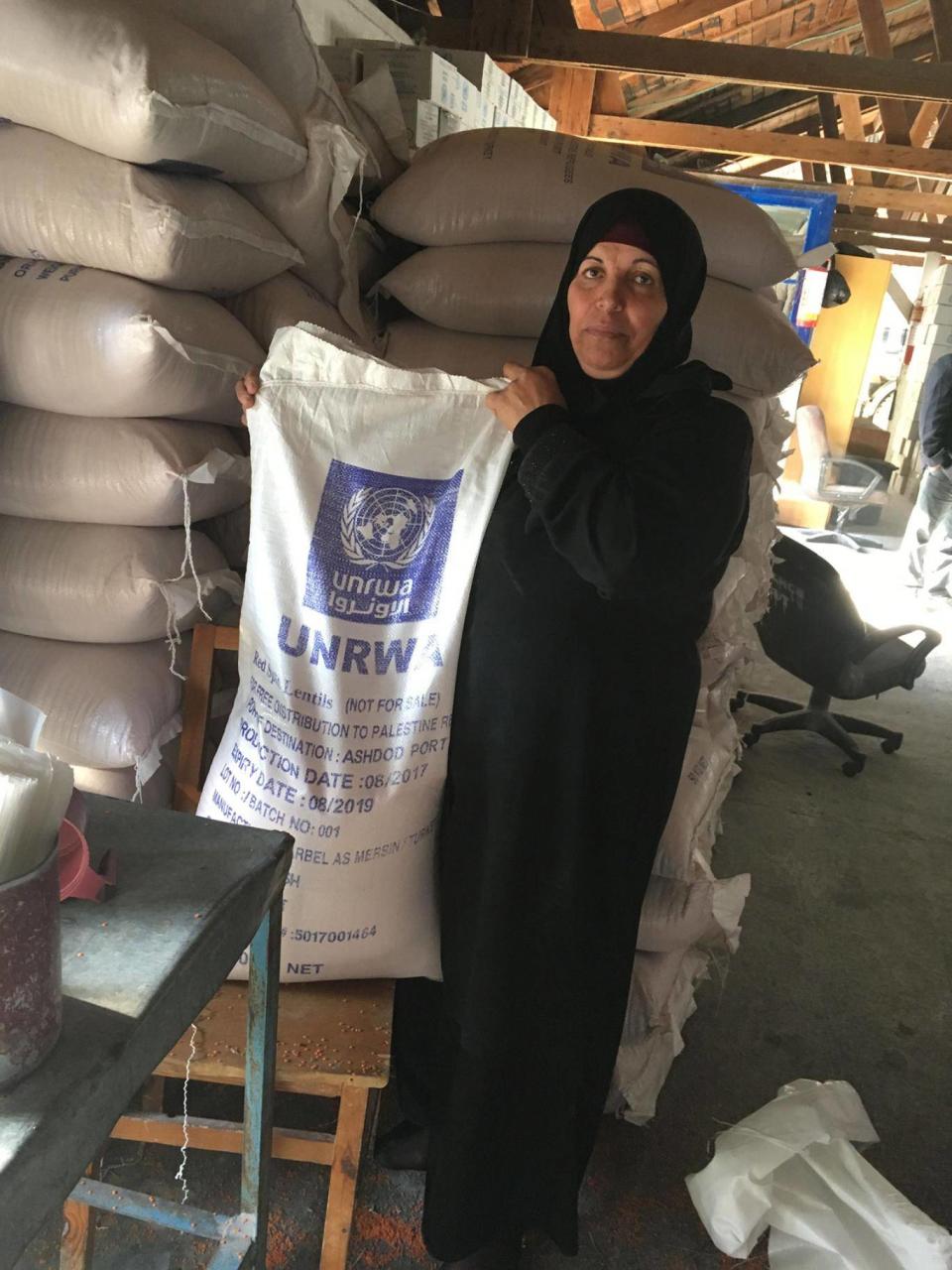'Trump - he wants us to die': Palestinians fear US aid cuts could ignite Gaza tinderbox

With their horses and carts and beaten-up cars, the refugees of Gaza’s Beach camp arrived early on Monday for their quarterly food boxes, given out on a rota system by UNRWA, the UN agency responsible for Palestinian refugees.
Some had come several days before their designated pick-up day, fearing that soon the free flour, lentils, sardines and oil on which their lives depend, would be gone.
“Trump – he wants us to die,” they cried angrily, as huge flour sacks thumped on the ground. They were talking of the US President’s shock decision last week to slash US funding to UNRWA by more than half, a move which threatens food aid to Palestinian refugees not only in Gaza but in camps in the West Bank, Lebanon, Syria and Jordan – where five million refugees rely on UNRWA for basic services, including health and education.
“They have tried with the bombs and now they want us to starve,” said Rihab Abu Sharifa, a 45-year-old widow, who shares her breeze block and asbestos home with 18 others, including her 12 grandchildren.
Anger about Mr Trump’s cuts to UNRWA spilled out in Gaza on the same day as Mike Pence, the US Vice President, held talks in Jerusalem with Benjamin Netanyahu, the Israeli Prime Minister, about a new “peace plan”.

But Mr Pence only stoked fresh outrage among Palestinians as he confirmed the US plan to move its embassy to Jerusalem. He also declared the city “Israel’s capital”, despite Palestinian claims that East Jerusalem – illegally annexed by Israel – should be the capital of a future Palestine.
At the same time 2,000 miles away, Palestinian President Mahmoud Abbas was urging European leaders to recognise the state of Palestine, and being told in return that the EU remains critical of the American approach and committed to a two-state solution with Jerusalem as a shared capital.
While Jerusalem hit the headlines, however, the most serious threat to any new peace plan came with America’s announcement of cuts to UNRWA’s aid budgets, to which the US is the largest donor. A promised initial payment from the US – more than $195m (£140m) for the first quarter of 2018 – was slashed without warning to $60m, triggering fears that food aid, as well as schooling and medical aid, would all be hit.
Fears about what this might mean were already clear to see on the faces of the “absolute” and “abject poor” of Gaza’s Beach camp, as they grabbed their UNRWA food boxes and made for home. UNRWA officials – normally a cautious breed – predicted a “catastrophe” if the boxes are not there when the refugees return for their next three-month supply.
Such warnings in Gaza are not unusual. Many predicted a new intifada following the last Israeli bombardment of 2014, and again after the recent US decision to recognise Jerusalem as Israel’s capital, but the Palestinians – too disillusioned with failed peace efforts, and divided amongst themselves – have largely stayed calm.
Yet the situation unfolding now is unprecedented, observers here said. The people of Gaza have lived through several cycles of war, and suffered under a 10-year blockade imposed by Israel. “They have seen the peace efforts fall apart and their own leadership divided. But nobody has ever taken away their bread and that is precisely due to UNRWA’s presence in all Palestinian camps,” said senior UN officials here.
Moreover, there is every reason to fear that the US cut to UNRWA’s budget has a political agenda and will be followed by a decision to remove the Palestinian refugees’ right of return home from any future deal. The right to return has been a core Palestinian claim, enshrined in UN resolutions, since the Arab-Israeli war of 1948 when the refugees were driven out of their homes in what is now Israel and have never been allowed back.

Such fears have been further fuelled by reports that America wants to limit the number of Palestinians defined as refugees by all but the first generation, who are fast dying out.
“Just as President Trump has taken Jerusalem off the table so he seems to want to take refugees off the table, “ said Matthias Schmale, director of UNRWA in Gaza.
For now, however, the immediate concern is calming fears of hunger in the camps.
While Gaza’s main streets present a veneer of energy, with shops apparently well stocked, few are buying even in the affluent areas. Minutes away, in the alleys of refugee camps where more than one million depend on UNRWA food aid, a more depressing story unfolds.
Stories of domestic abuse, theft, violence and suicide spill out of nearly every household. Unemployment in the camps is as high as 70 per cent, and again and again, the main fear is that food aid will stop.
Riba Abu Sharifa takes us into the ground floor of her tiny breeze block house where amid piles of unwashed clothes and detritus she shares a room with two unmarried sons.
Behind towels strung up for doors, her two jobless sons live with their wives and children, five each, in two single rooms. Electricity is on for just a few hours a day and sanitation is near collapse as raw sewage pours into the sea nearby.
The cuts to UNRWA will affect not only food aid, but end the already slow post-war reconstruction programme and lead to cuts to UNRWA jobs, thereby further undermining the Gaza economy. Equally dangerous, say officials, will be cuts to the UNRWA school budget, pushing children onto the streets instead of into classes.
Aid workers here hold out hope that the EU, UNRWA’s second biggest donor, as well as Arab countries, will fill the budget cuts made by the US. There is also speculation that Israel itself will call on the US to reverse the cuts, in the knowledge that a humanitarian disaster on its doorstep could destabilise Israel itself and the whole region.
In UNRWA’s Gaza offices, however, they know that if Israel sees a chance to remove the refugees right of return, with US backing, it will seize it. One official commented: “We hope the money will be forthcoming but we are planning for chaos”.

 Yahoo News
Yahoo News 
